Fado means “fate”, and at its most traditional the elegantly melancholic music is performed by a singer, a Spanish guitar, and the 12-stringed Portuguese guitar. The performance art deals with life’s great mysteries and passions – love, jealousy, death, and betrayal. In Lisbon fado has become a source of national pride with tons of restaurants preaching that they have excellent – or even “the best” – fado.
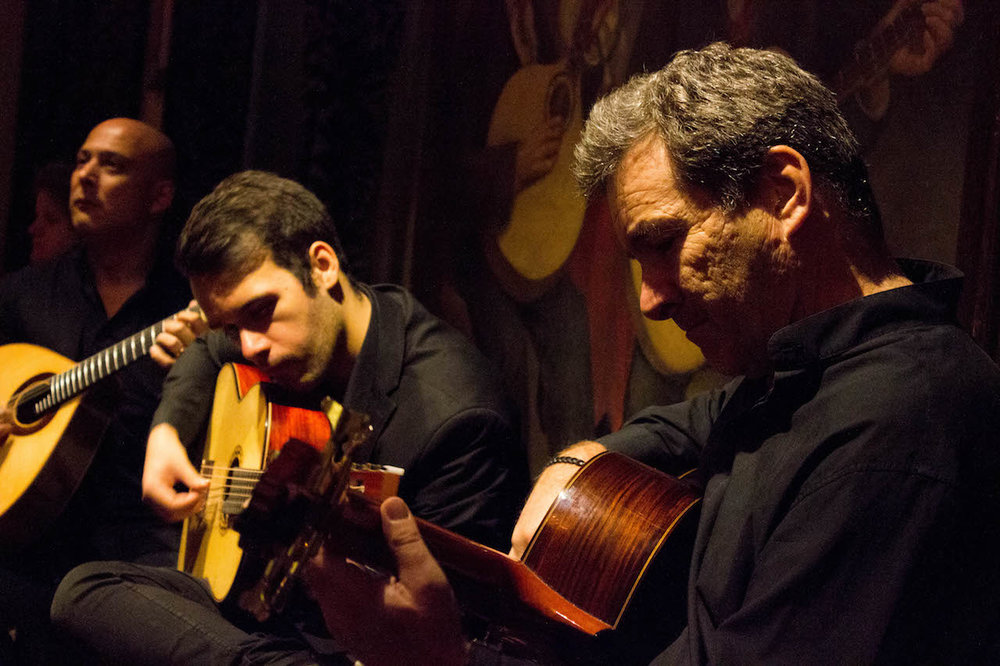
So where does one go if they are visiting Lisbon and wants to experience a night of authentic fado? Perhaps the famous Fado House, Adega Machado, would be a great start. The restaurant was founded in 1937 in the Barrio Alto district of Lisbon. Here guests can dine on gourmet Portuguese cuisine while enjoying live fado into the wee hours of the night. Along the walls photographs are hung showing records of the fado house’s history and tradition.
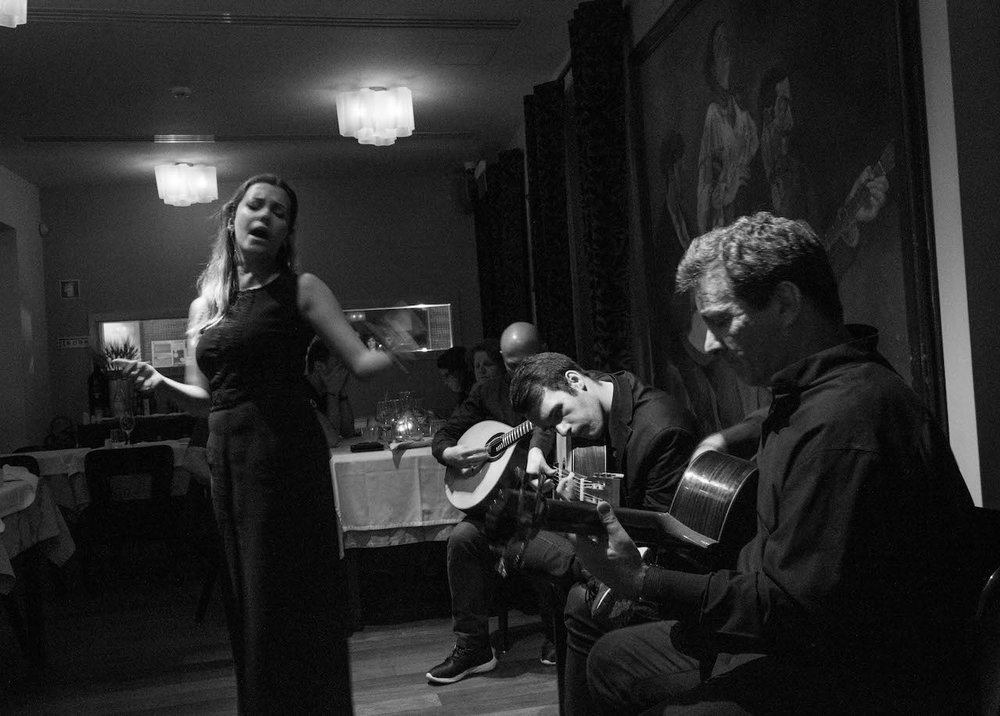
There are few moments that feel as authentically Portuguese as listening to the passionate voices of fado singers while enjoying world-class grilled octopus, bacalhau (salted cod fish), and porto wine. The singer’s charmed the room as they sang in perfect harmony with the guitarists. It was enchanting – all eyes were locked on the performers as they emotionally told their story.
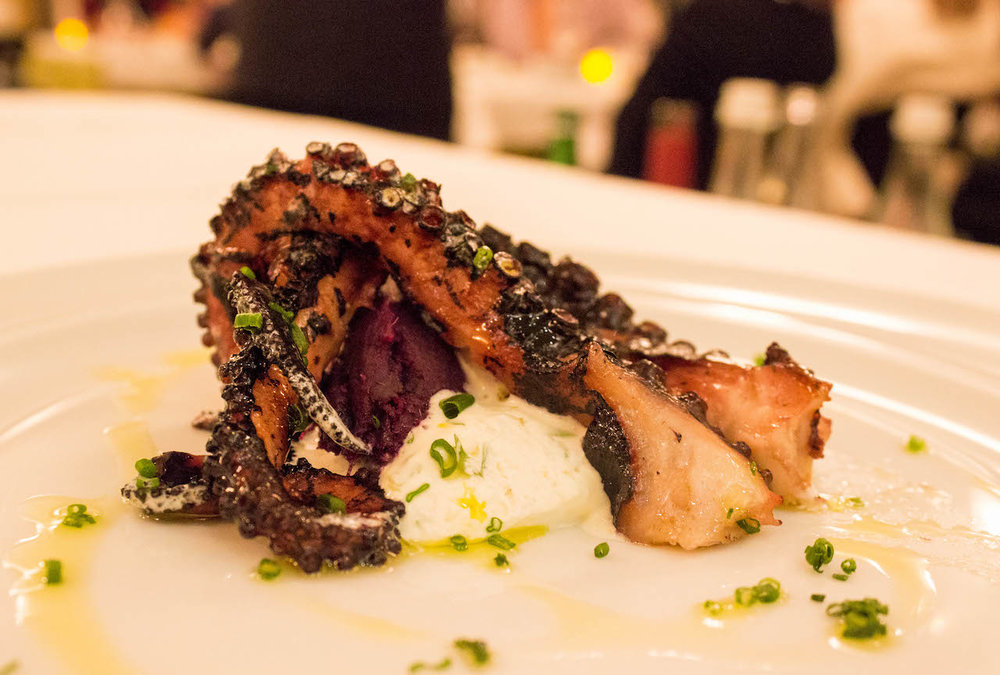
Fado’s origin is a mystery – some say its roots are Arabic others say it’s Brazilian. Regardless of where it came from, it emerged into popularity in the 1850’s, and remains popular today.
The most famous fado performer was Amália Rodrigues – now recognized among Portuguese heros for her contribution to the art form. She was a captivating performer (watch the video below) and used her wonderfully expressive voice to gain the genre an international audience. When she died in the 1999, the nation mourned and people cried on the streets. Today her house is a museum – the Casa-Museu Amália Rodrigues. It is a shrine to Portugal’s most admired fadista.
At Adega Machado it seemed the performers were channeling her that night – their passionate voices radiating through the room. It was easy to lose track of time between the fado singers and the excellent cuisine. To explain the impact that these song’s have on you is practically impossible. Perhaps Amália Rodrigues says it best “The only thing that matters is to feel the fado. The fado is not meant to be sung; it simply happens. You feel it, you don’t understand it and you don’t explain it.”
I was a guest at Adega Machado, however, the opinions are my own. Reservations are warmly suggested. To learn more visit adegamachado.pt.

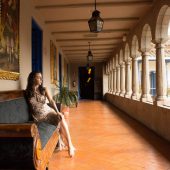







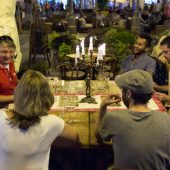


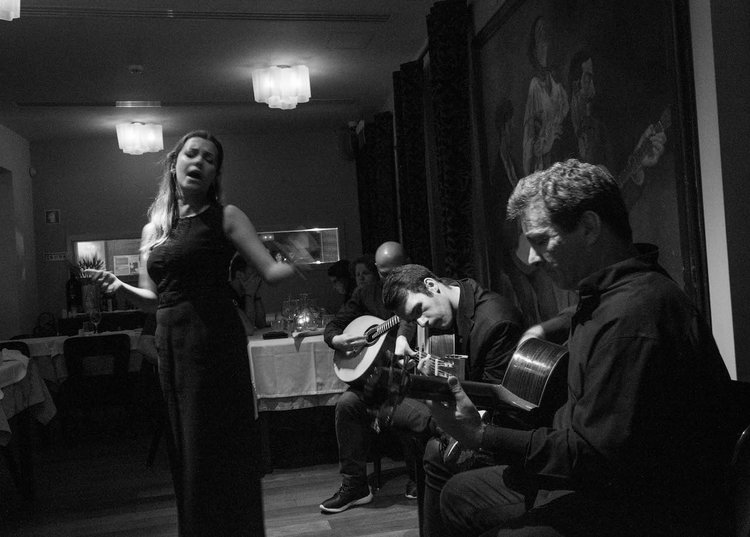

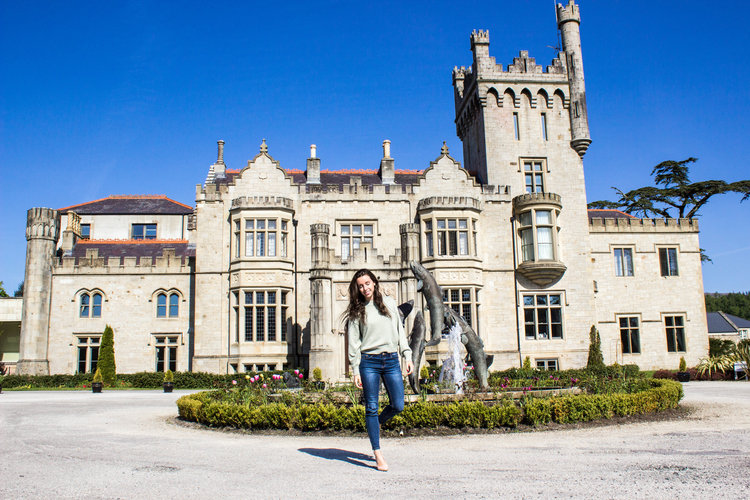

This site is protected by reCAPTCHA and the Google Privacy Policy and Terms of Service apply.